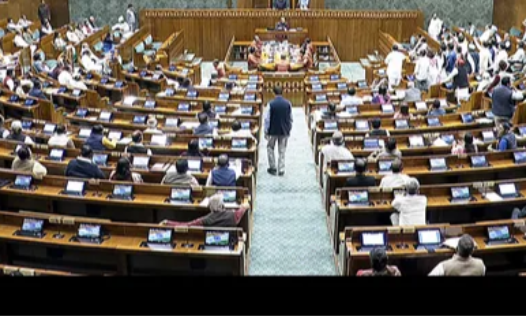Payment is being processed. Please do not refresh or close this page until your payment is complete.
 Book an Appointment
Book an Appointment

The Immigration and Foreigners Bill, 2025, is expected to be introduced in the Lok Sabha today, proposing a comprehensive overhaul of India’s immigration laws. The bill aims to enhance national security, streamline immigration procedures, and impose stricter penalties on foreigners who violate entry and stay conditions. It introduces a significant shift by placing the burden of proving legal status on individuals rather than the state.
The bill explicitly states that any foreign national posing a threat to national security, sovereignty, or integrity will be denied entry or permission to stay in India. It also proposes mandatory registration for foreigners upon arrival, restricting their movement, name changes, and access to protected or restricted areas. Additionally, institutions such as educational establishments, hospitals, and nursing homes will be required to report foreign nationals to immigration authorities.
Harsh penalties have been proposed for violations. Entering India without a valid passport or visa may lead to imprisonment of up to five years and a fine of up to Rs 5 lakh. Foreigners using forged documents could face a jail term of two to seven years, with fines ranging from Rs 1 lakh to Rs 10 lakh. Overstaying, violating visa conditions, or accessing restricted areas could result in imprisonment for up to three years, a fine of up to Rs 3 lakh, or both. Transport carriers bringing foreigners without valid documents will be held accountable, facing fines of up to Rs 5 lakh, and potential seizure of their transport if penalties are not paid. If a foreigner is denied entry, the carrier will be responsible for their immediate removal from India.
The bill also grants immigration officers the authority to arrest individuals without a warrant and empowers the central government to regulate the movement of foreigners, including restricting entry, preventing departure, and prohibiting access to specific areas. Foreign nationals will be required to exit at their own expense and provide biometric data for identification.
The new legislation seeks to replace colonial-era laws, including the Foreigners Act, 1946, the Passport (Entry into India) Act, 1920, the Registration of Foreigners Act, 1939, and the Immigration (Carriers’ Liability) Act, 2000. These laws, enacted during the World War era, are now seen as outdated, and the government argues that a unified framework is necessary to avoid overlapping regulations.
With its broad implications for immigration enforcement and national security, the Immigration and Foreigners Bill, 2025 is likely to spark significant debate. While the government views it as a necessary step to tighten border control and prevent illegal migration, critics may question the administrative burden on individuals to prove their legal status and the sweeping powers granted to immigration officers. If passed, the bill will establish one of the most stringent immigration systems in India’s history, introducing strict entry protocols and reinforcing the government’s control over foreign nationals.
Source: https://www.financialexpress.com/india-news/immigration-and-foreigners-bill-to-be-introduced-in-lok-sabha-stricter-entry-rules-proposed/3773880/